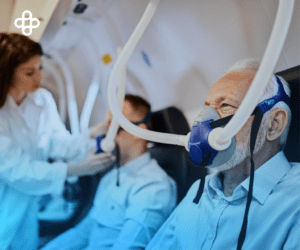Diabetes is a chronic condition that affects millions of people globally. Despite advances in treatment and management, it remains a significant public health challenge. However, recent developments in regenerative medicine have opened new avenues for treating this disease. Stem cells have a unique ability to differentiate into various cell types. Offer significant hope for improving and potentially curing diabetes.
What Are Stem Cells?
Stem cells are undifferentiated cells capable of transforming into specialized cells in the body. There are several types of stem cells, including embryonic and adult stem cells. Embryonic stem cells can potentially become any cell type in the body. Adult stem cells have more limited differentiation capabilities. Nevertheless, both types can regenerate damaged tissues and create new cell types, making them incredibly valuable in regenerative medicine.
The Challenges of Diabetes
Diabetes, whether Type 1 or Type 2, is characterized by problems with insulin production and use in the body. Type 1 diabetes is an autoimmune disease where the immune system attacks and destroys the insulin-producing beta cells in the pancreas. Type 2 diabetes, on the other hand, occurs when the body cannot properly use or produce enough insulin. Both types of diabetes can lead to severe complications if not properly managed, including cardiovascular diseases, kidney damage, neuropathy, and vision problems.
Stem Cells in Diabetes Treatment
Stem cells in diabetes treatment focus primarily on regenerating pancreatic beta cells. Research has shown that stem cells can differentiate into insulin-producing cells. Potentially restoring normal pancreatic function in patients with Type 1 and Type 2 diabetes. Here are some key strategies:
Beta Cell Regeneration
One of the most promising approaches is regenerating beta cells by differentiating stem cells into these specific cells. Beta cells are responsible for insulin production and release in the pancreas. Researchers have successfully converted embryonic and induced pluripotent stem cells (iPS) into functional beta cells in the laboratory. These generated beta cells can be transplanted into the pancreas of diabetic patients to restore their insulin-producing capacity.
Immunomodulatory Therapy
In Type 1 diabetes, the immune system attacks pancreatic beta cells. Stem cells have the potential not only to regenerate beta cells but also to modify the body’s immune response. Immunomodulatory therapies with stem cells aim to reduce autoimmune activity and protect the new beta cells from immune attacks. This dual approach could offer a more durable solution for patients with Type 1 diabetes.
Personalized Medicine
Stem cells also enable the development of personalized therapies, using the patient’s cells to reduce the risk of rejection and improve treatment efficacy. This approach involves reprogramming the patient’s cells to become induced pluripotent stem cells (iPS), which can then be differentiated into beta cells. Using the patient’s cells minimizes the risk of immune rejection and enhances transplant compatibility.
Success Stories and Recent Studies
Numerous studies and clinical trials have shown promising results in using stem cells to treat diabetes. For instance, a study published in Cell Stem Cell demonstrated that induced pluripotent stem cells could differentiate into functional beta cells capable of producing insulin in animal models. Another study in Nature Biotechnology reported successful beta cell transplants derived from stem cells in Type 1 diabetes patients, showing significant improvement in glycemic control.
In clinical trials, biotech companies like ViaCyte are developing stem cell-based therapies for diabetes. ViaCyte has initiated trials with its PEC-Direct product, which consists of an implantable device containing pancreatic progenitor cells derived from stem cells. These devices have shown the ability to produce insulin in Type 1 diabetes patients, representing a significant advance towards a potential cure.

Challenges and the Future of Stem Cell Therapy
Despite these advances, researchers must overcome several challenges before stem cell therapies become a standard option for diabetes treatment. These include the need to improve stem cell cultivation and differentiation methods, ensure long-term safety and efficacy, and address the ethical issues associated with using embryonic stem cells.
Cultivation and Differentiation Methods
The efficiency and reliability of differentiating stem cells into functional beta cells remain challenging. Researchers are working on refining differentiation protocols and developing more efficient and consistent methods. Additionally, it is crucial to ensure that the generated beta cells are fully functional and capable of appropriately responding to blood glucose levels.
Long-term Safety and Efficacy
The long-term safety of stem cell therapies is a significant concern. It is essential to ensure that transplanted cells do not cause adverse side effects, such as tumor formation or immune responses. Long-term clinical trials are needed to evaluate these therapies’ continued safety and efficacy.
Ethical Considerations
The use of embryonic stem cells raises ethical questions that must be considered. As we advance in stem cell research and therapy development, it is vital to maintain an ethical and responsible dialogue regarding the use of these technologies. Induced pluripotent stem cells (iPS), obtained by reprogramming adult cells, offer a less controversial alternative and have great potential in diabetes research and treatment.
Conclusion
Stem cells offer new hope for treating diabetes, potentially regenerating beta cells and restoring insulin production. Although researchers need to conduct further studies and clinical trials, advances in this field could revolutionize diabetes management and improve the quality of life for millions affected by this chronic condition. Regenerative medicine with stem cells represents an exciting frontier in the fight against diabetes and could change the future of treatment for this chronic condition.





